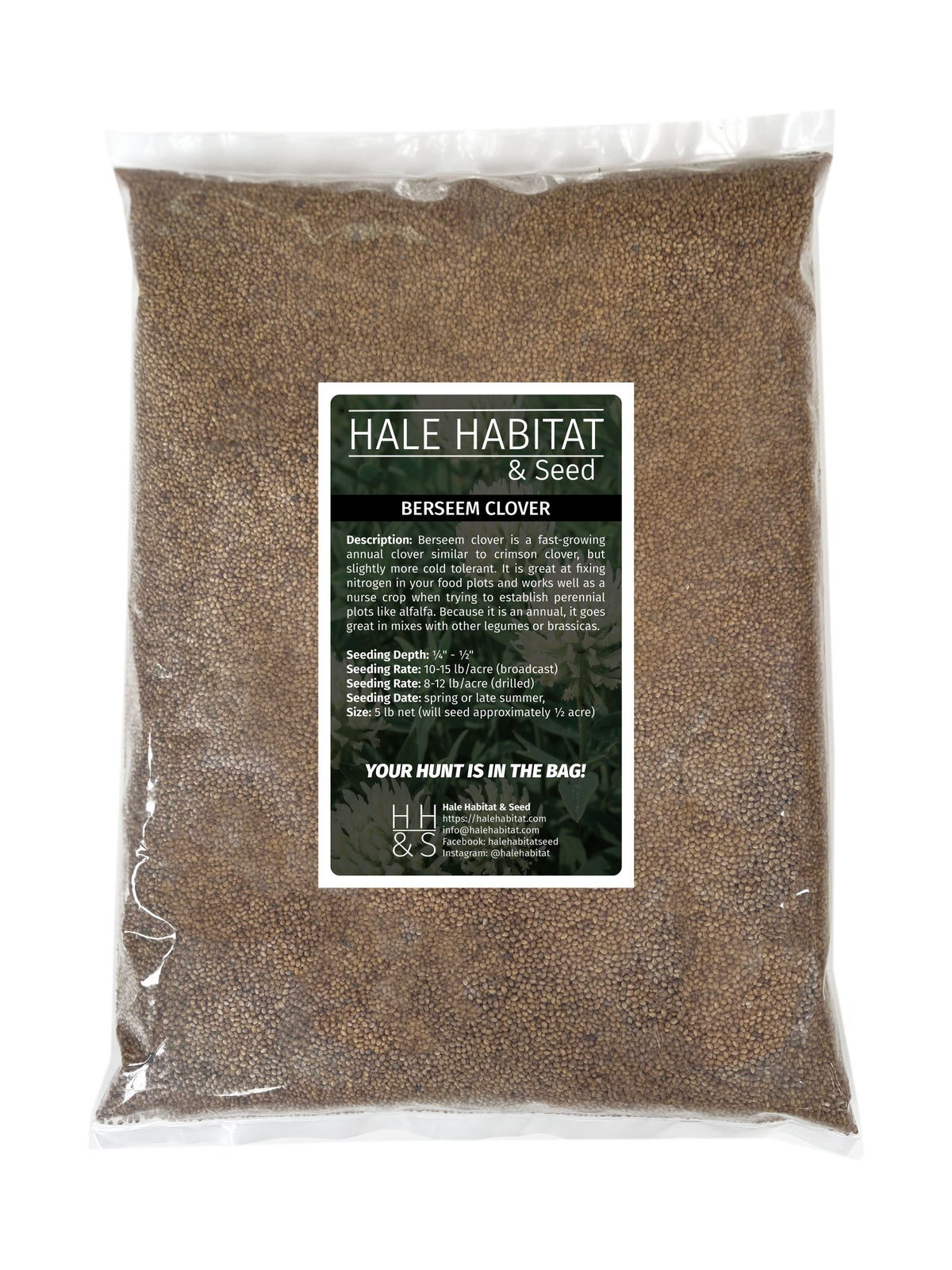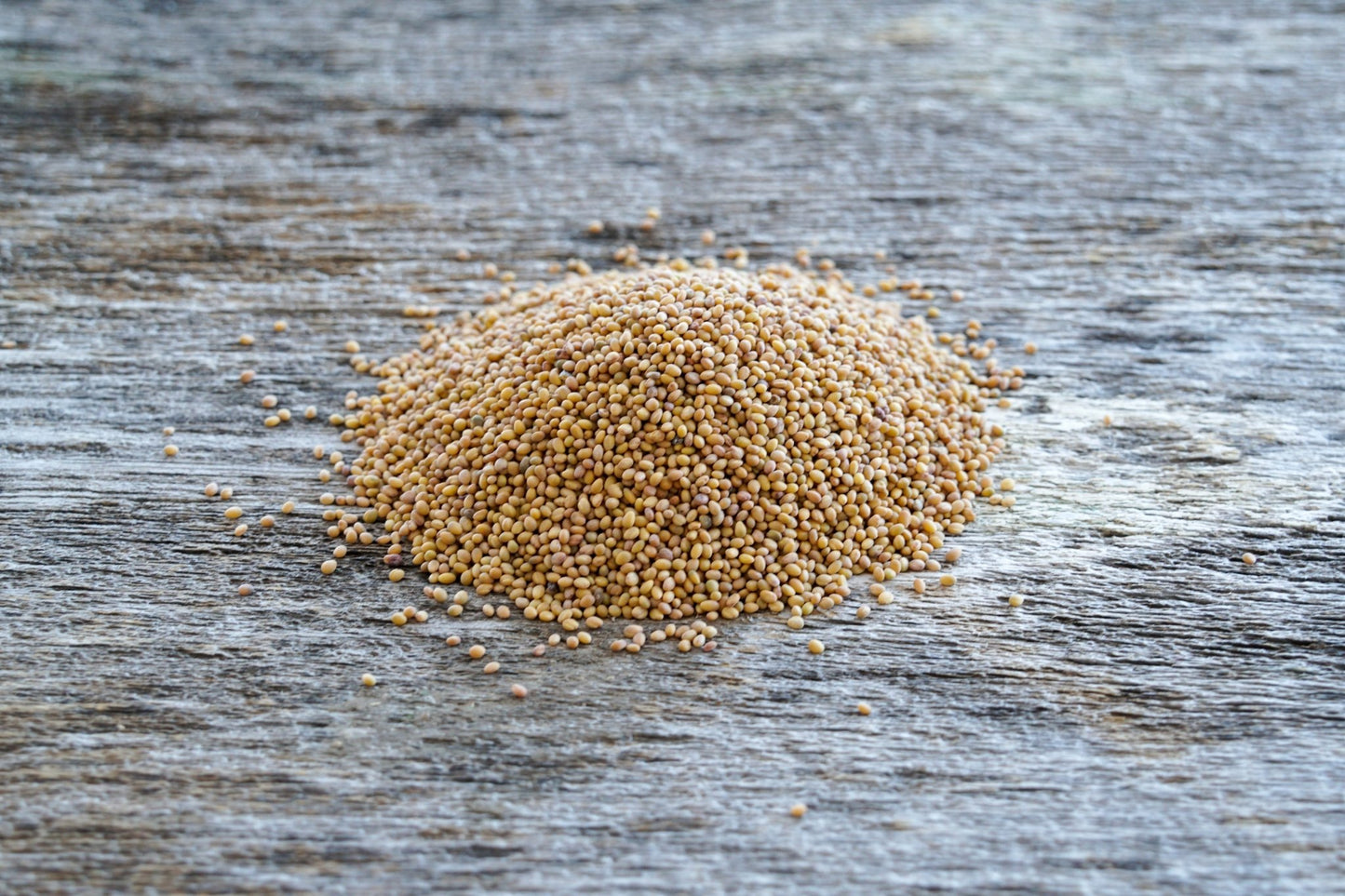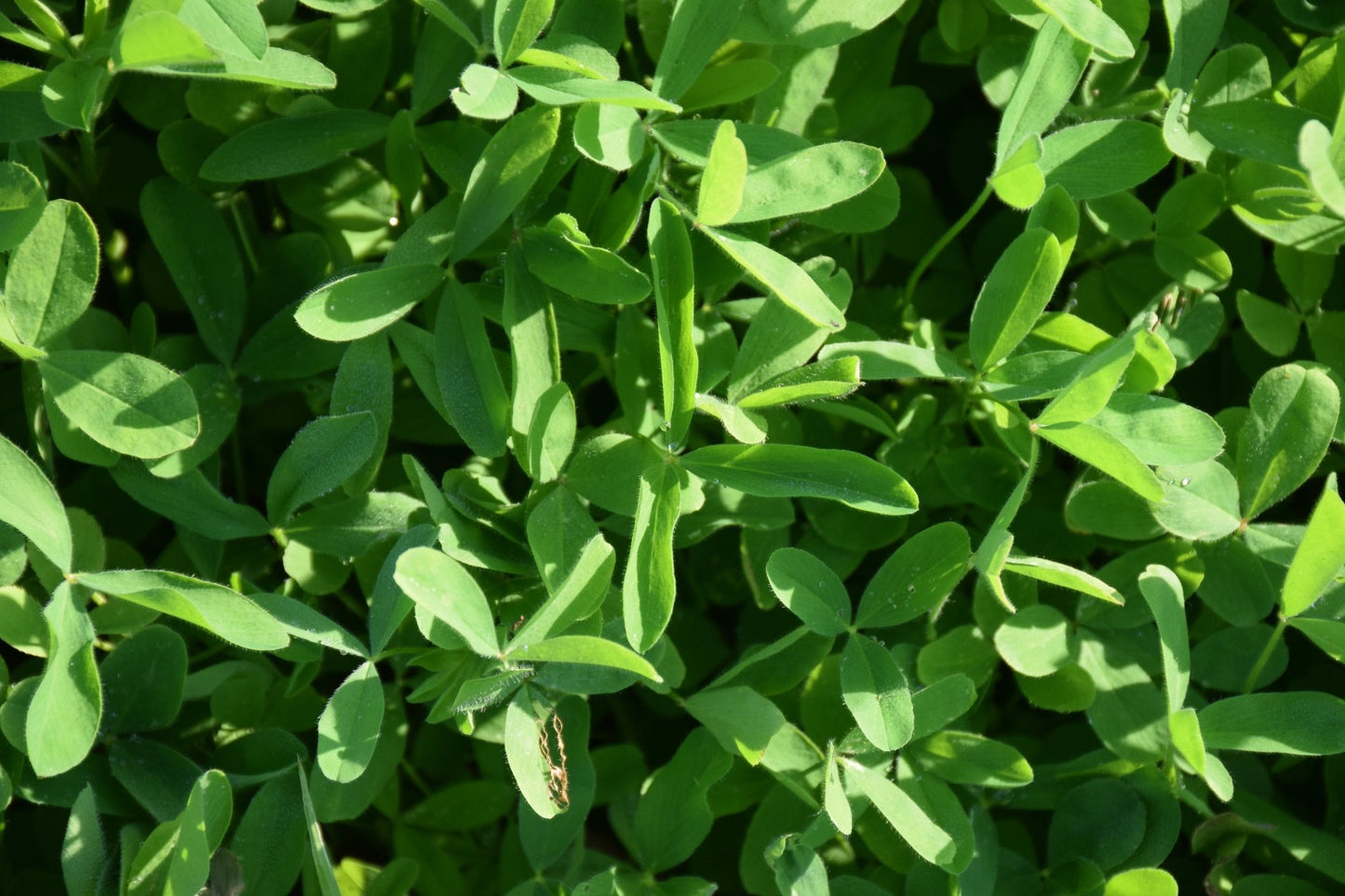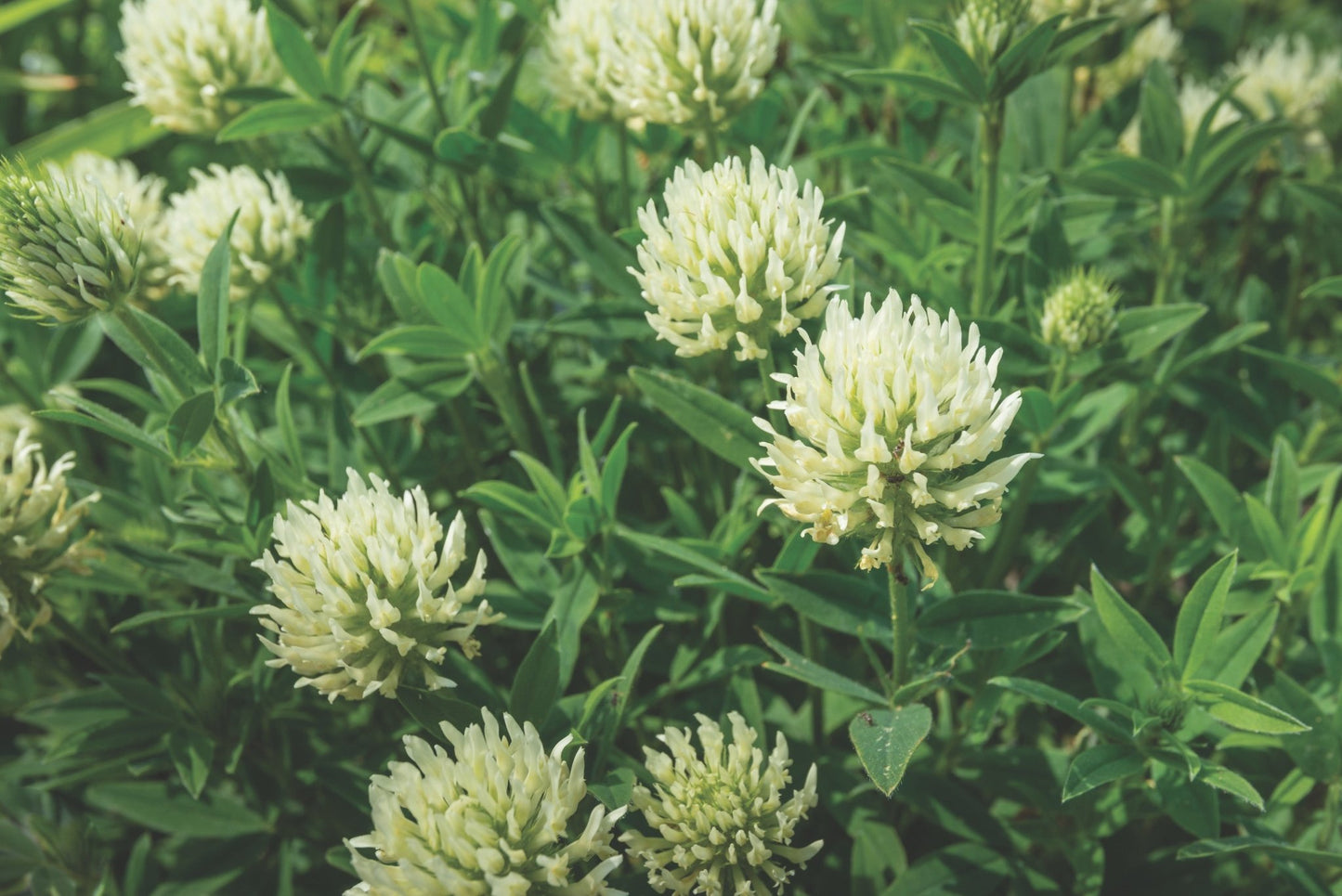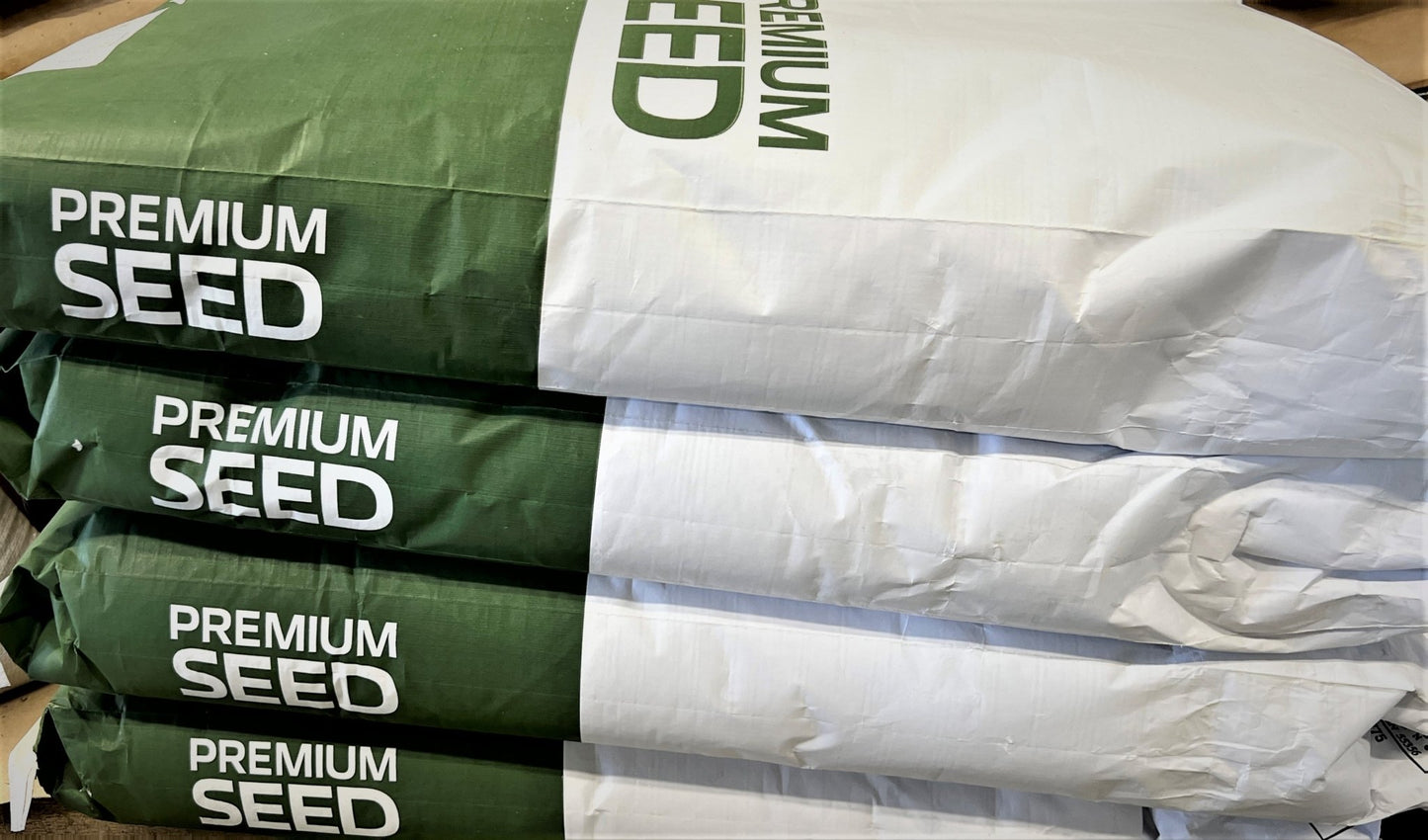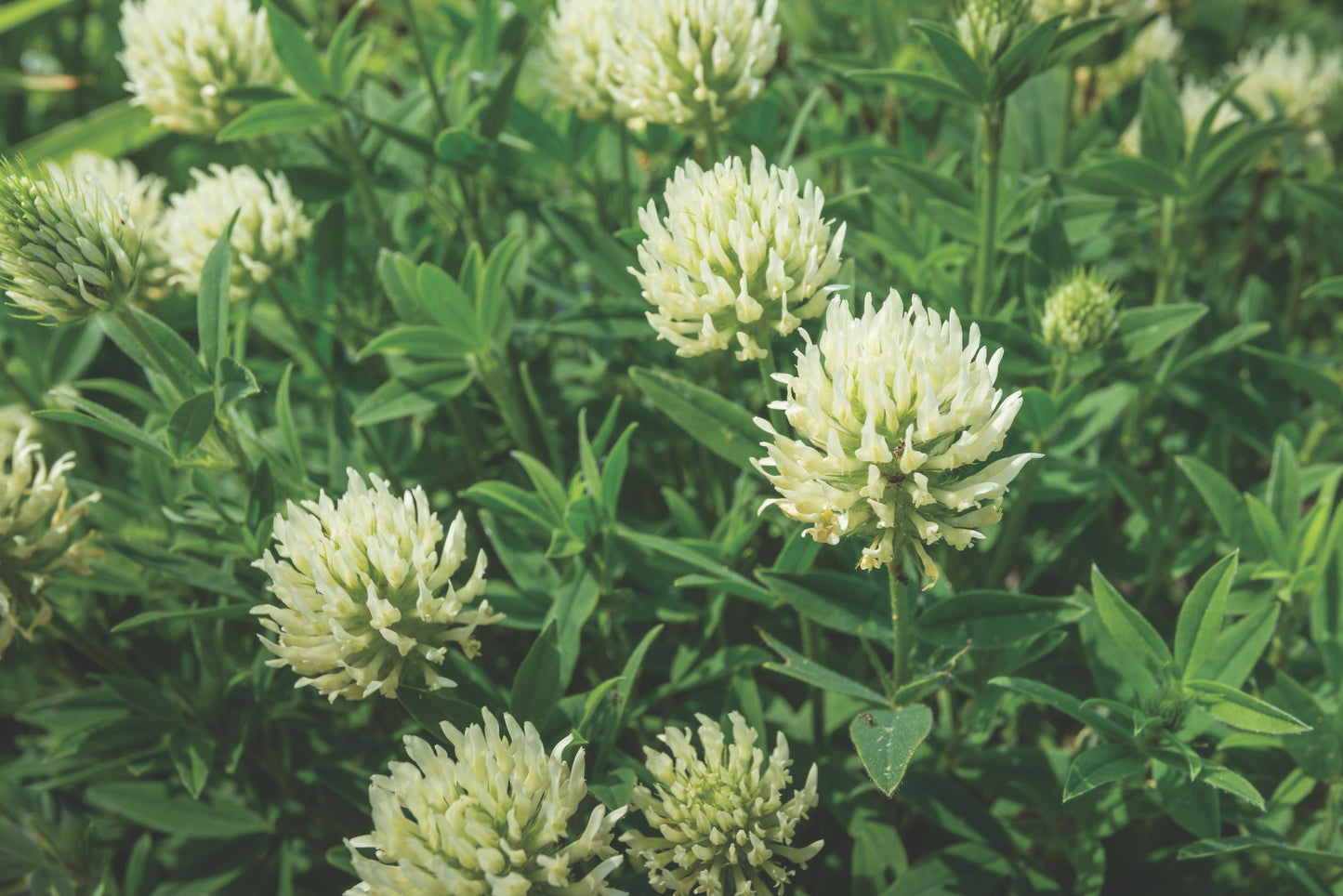Hale Habitat & Seed
Berseem Clover (pre-inoculated)
Berseem Clover (pre-inoculated)
FREE SHIPPING!
Couldn't load pickup availability
Berseem clover (Trifolium alexandrinum) is a high-yielding, fast-growing annual legume commonly used for forage, cover crops, and wildlife food plots. Its rapid establishment and high-protein content make it a popular choice for wildlife, providing valuable nutrition for deer, turkey, rabbits, and other wildlife species. Berseem clover also benefits soil health through nitrogen fixation and erosion control. Inoculated with an NOP compliant seed treatment for maximum germination.
Benefits for Wildlife
✔ High-protein forage (up to 30%) is excellent for deer, turkey, rabbits, and other wildlife.
✔ Attracts pollinators, such as bees, improving biodiversity.
✔ Provides early spring forage when other food sources may be scarce.
✔ Rapid growth – excellent for quick, temporary food plots.
✔ Can be used as a rotational crop to improve soil fertility for other crops.
Planting Guidelines
-
Planting Times:
- Fall (August–September): Ideal for establishing winter forage.
- Spring (March–April): Can also be planted in spring for summer and fall forage, especially in milder climates.
-
Seeding Depth:
- ¼ to ½ inch deep for best germination. Ensure good seed-to-soil contact.
-
Seeding Rates:
- Drilled: 10–15 lbs per acre for more uniform stands.
- Broadcast: 15–20 lbs per acre, followed by light dragging or cultipacking to ensure good soil contact.
-
Days to Maturity:
- 60–90 days to reach full growth, with first blooms appearing in about 60–75 days.
-
Drought Tolerance:
- Moderate – Berseem clover is less drought-tolerant than some other clovers but performs well with adequate moisture during establishment.
-
Saturated Soil Tolerance:
- Moderate – Tolerates wet soils better than some other clover varieties but still prefers well-drained soils.
-
Shade Tolerance:
- Low to Moderate – Prefers full sun, though it can tolerate partial shade.
Fertilization Guidelines for Berseem Clover
- Soil pH: Prefers slightly acidic to neutral soils with a pH range of 6.0–7.0.
- Nitrogen (N): As a legume, berseem clover fixes its own nitrogen, but some additional nitrogen (20–30 lbs per acre) can be beneficial for early growth, especially in nitrogen-poor soils.
- Phosphorus (P): 20–40 lbs P₂O₅ per acre, based on soil test recommendations, to support root development and early growth.
- Potassium (K): 30–60 lbs K₂O per acre for overall growth, particularly if the soil is low in potassium.
Fertilization Timing:
- Apply phosphorus and potassium before planting based on soil tests.
- Consider top-dressing with nitrogen if needed in the early spring to promote robust growth.
Herbicide Use for Berseem Clover
-
Weed Management:
- Berseem clover is susceptible to competition from weeds, especially in the early growth stages. Effective weed control is essential to ensure successful establishment.
-
Herbicide Options:
- Pre-emergence: Herbicides like Prowl H2O (Pendimethalin) or Sonalan (Ethalfluralin) can be used before planting to control grasses and broadleaf weeds.
- Post-emergence: After the clover is established, herbicides like 2,4-D may be used to control broadleaf weeds. However, careful application is required to avoid clover injury.
Key Considerations:
- Always read labels for herbicide compatibility and application timing.
- Use minimal herbicides to prevent injury to beneficial insects and to reduce the risk of herbicide resistance.
Share
